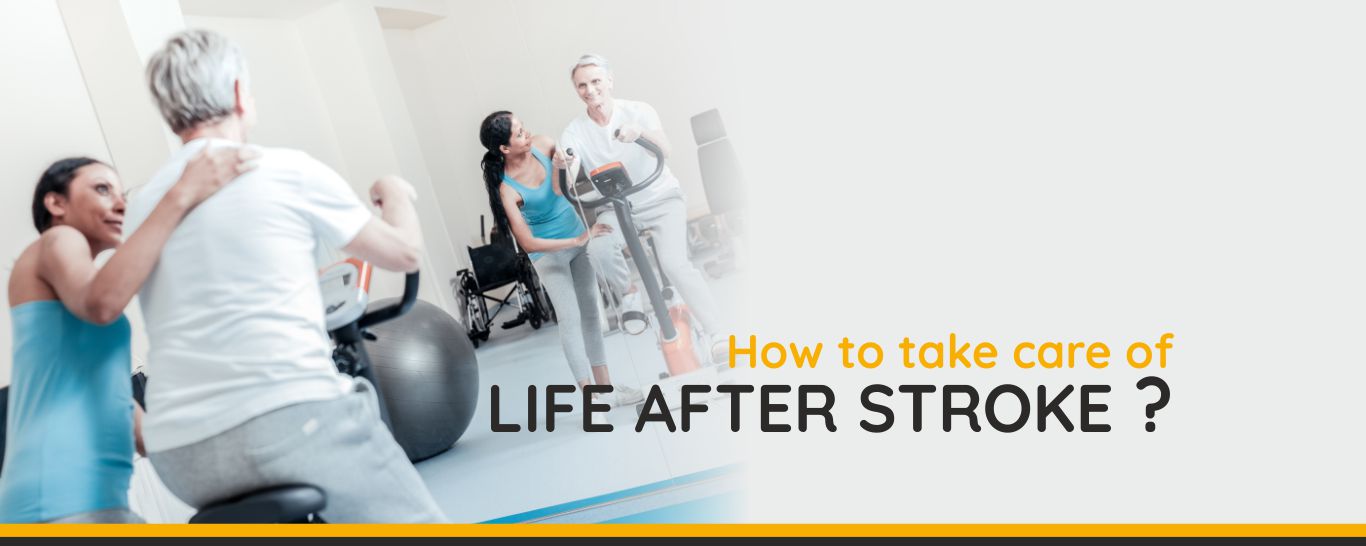Stroke is becoming a critical cause of death in India, and those who survive this devastating brain injury, continue to live with disabilities. Rehabilitation care becomes of the highest importance for stroke patients to regain independence and quality of life.
The effects of a stroke vary a lot from person to person. They range from mild to severe and can be temporary or permanent depending upon the location and type of stroke. To combat the harmful effects of stroke and seek immediate medical help, one should know its signs and symptoms which can be remembered by the cure BEFAST.
REMEMBER “BEFAST”
B – Balance: Sudden loss of balance or coordination
E – Eyes: Sudden change in vision in one or both eyes
F – Face: Sudden weakness of the face
A-Arms: Sudden weakness of an arm or leg
S – Speech: Sudden difficulty speaking
T – Time: Time the symptoms started
If one notices any of the above signs, please contact the doctor immediately. During the recovery period (which can extend up to years), it’s important to understand that apart from the stroke patient, the caregiver also needs support and care, as the latter may be under high stress.
Care of a Stroke patient:
- Ensure to attend all appointments and follow-ups with your Physiatrist, Neurologist, Physiotherapist, Occupational therapist, Speech therapist and Nutritionist, avoid absenteeism. It would lay a solid foundation for recovery.
- Get your home assessed for accessibility and mobility by an occupational therapist, to modify it for your safe mobility and independence. These changes may comprise handrails, ramps, toilet seat modification or change of flooring to avoid trips and falls.
- Take medications prescribed by your doctor only (avoid any self-medications).
- If advised for a blood test, get them done timely as certain medications need to be adjusted. Eg.: if you are taking a blood thinner, you may need to get the PT INR (to check if your blood is taking more than normal time to clot) checked so your doctor must be informed about the same.
- Call your doctor if you notice bleeding in your gums, or blood in stool or urine as it could be because of excessive thinning of blood and it requires immediate treatment.
- Regularly monitor your health – B.P, weight, glucose levels if you are diabetic, what you eat/drink, your physical activity duration and also your rest time.
- Balance your physical activity and rest time – sleep for at least 8-9 hrs in a day, exercise at least five days a week and incorporate all components of physical activity like flexibility, strength training, endurance training, and balance training in your rehab plan.
- Eat a healthy and nutritious diet as suggested by your nutritionist. Many patients are advised to avoid green leafy vegetables when they are on the blood thinner. Get your diet plan ready when leaving the hospital and get it reviewed from time to time.
- If you have swallowing difficulty (dysphagia), consult a speech therapist/ occupational therapist to manage it with various maneuvers and techniques.
- Return to work, as and if your recovery permits, based on your Doctor’s medical advice.
- Take care of the emotional aspect of healing – get connected with a Stroke support group.
- Stop all risk factors of stroke – no tobacco chewing, no alcohol.
Care for Family and Caregivers:
Care of a stroke patient begins with the Caregiver, as he/she has to be really energetic and committed to play a vital role in a patient’s recovery. Please follow the below To-Do list for better care and preventing burnout of a caregiver:
- Divide roles and responsibilities like who would be taking the patient for follow-up or rehabilitation sessions.
- Give time to yourself by changing the duty with other people on a time to time basis.
- If possible find ways to socialize, if not with a physical presence then mobile phones and the internet are at your rescue.
- Take enough sleep, as sleep deprivation can affect the care of patients too.
- Place all-important health insurance paper at a designated point and keep it informed among the family members and caregivers, In case of emergency, it would come very handy.
- Make a list of important contact details at a commonplace.
Above all, be hopeful and don’t give up on your effort, as recovery is possible even five years after the stroke incident. Trust your inner self, adopt advanced rehabilitation to improve your quality of life, and know that your body has immense potential to heal.
Written by: Pooja Bajaj, Neuro Therapist, AktivHealth.


